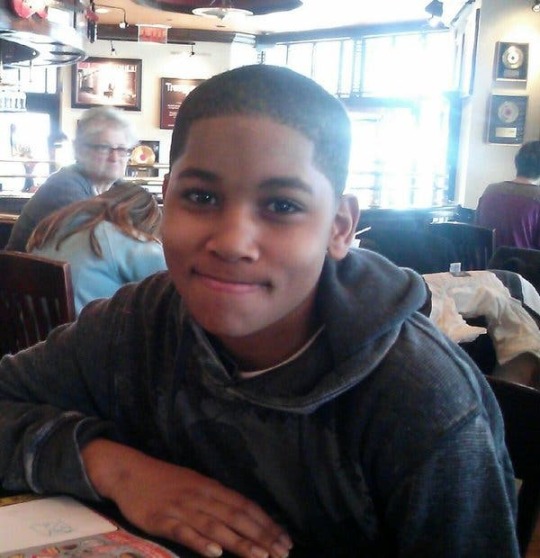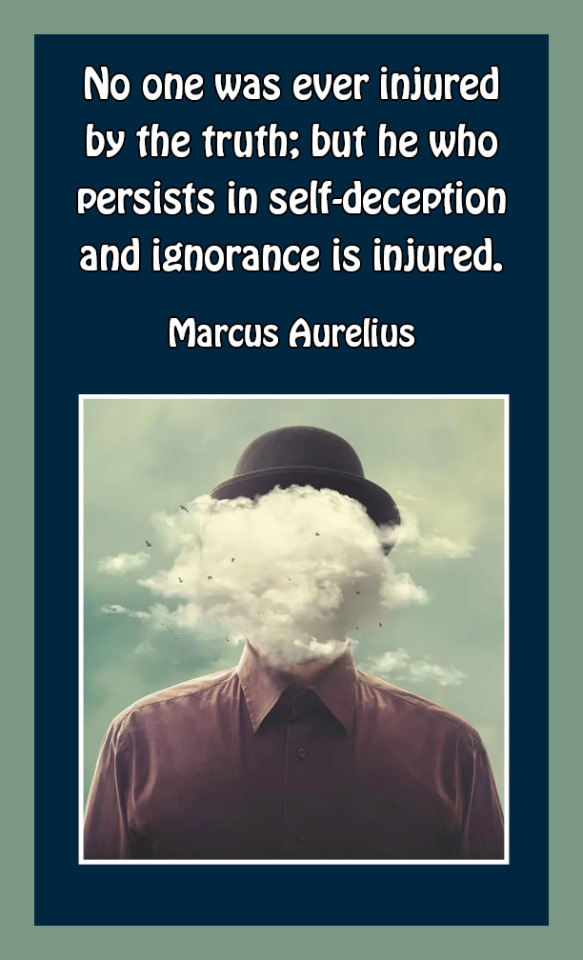#self-deception
Text

#capitalist consumption at its extremest#capitalist hell#self-deception#like opium for the masses#thoughts#capitalists be like
43 notes
·
View notes
Text
The Philosophy of Deception
The philosophy of deception explores the ethical, epistemological, and psychological dimensions of falsehood, dishonesty, and manipulation in human communication and behavior. It delves into questions surrounding the nature of truth, the morality of deception, and the implications of deceit for individual autonomy, social relations, and the pursuit of knowledge. Here are some key aspects of the philosophy of deception:
Nature of Truth: Central to the philosophy of deception is the concept of truth and its relationship to falsehood. Philosophers debate whether truth is objective and absolute, or if it is relative and context-dependent. They also consider the role of perception, interpretation, and perspective in shaping our understanding of truth and the potential for deception to distort or conceal it.
Ethics of Deception: Philosophers examine the moral dimensions of deception, considering whether and under what circumstances it is permissible or justified to deceive others. Ethical theories such as utilitarianism, deontology, and virtue ethics offer different perspectives on the morality of lying, deception, and manipulation, weighing factors such as intention, consequences, and principles of honesty and integrity.
Types of Deception: The philosophy of deception categorizes different forms of deceit, including lying, misleading, withholding information, and manipulating perceptions or beliefs. Philosophers analyze the characteristics, motivations, and consequences of various types of deception, as well as their implications for trust, autonomy, and interpersonal relationships.
Epistemological Implications: Deception raises epistemological questions about the reliability of knowledge and the challenges of discerning truth from falsehood. Philosophers explore how deception undermines the epistemic trustworthiness of communication and evidence, complicating the quest for knowledge and understanding in fields such as science, law, and politics.
Self-Deception: A prominent topic in the philosophy of deception is self-deception, the process by which individuals deceive themselves about their own beliefs, desires, or motivations. Philosophers investigate the psychological mechanisms and cognitive biases that contribute to self-deception, as well as its implications for self-awareness, rationality, and personal identity.
Social and Political Deception: Deception is pervasive in social and political contexts, where individuals, groups, and institutions may engage in propaganda, misinformation, or manipulation to influence public opinion, gain power, or advance their interests. Philosophers analyze the ethical and political implications of deceptive practices in areas such as media, advertising, diplomacy, and governance.
Remedies and Responses: Philosophers consider strategies for detecting, preventing, and mitigating deception, including critical thinking skills, transparency, accountability mechanisms, and legal regulations. They also explore the role of education, media literacy, and ethical norms in fostering a culture of honesty, integrity, and trustworthiness.
Overall, the philosophy of deception illuminates the complex and multifaceted nature of falsehood and its impact on human thought, action, and society. By grappling with ethical dilemmas, epistemic challenges, and practical concerns related to deception, philosophers contribute to our understanding of truth, trust, and the ethical responsibilities of communicators and decision-makers.
#philosophy#epistemology#knowledge#learning#chatgpt#education#ethics#psychology#deception#Truth#Morality#Lying#Trust#Self-deception#Social deception#Political deception#Remedies#society#culture
3 notes
·
View notes
Text
Unveiling the True Father of Lies
The Misconception of Satan as an External EntityIn the labyrinth of human belief systems, the concept of Satan stands as one of the most controversial and misunderstood. Traditionally depicted as the epitome of evil and temptation, an external entity battling against the forces of good, I challenge that notion, proposing a radical interpretation: Satan is not an actual being, but a…

View On WordPress
#human nature#Id#Inner Demons#Metaphor#Personal Responsibility#Psychoanalytic Theory#Satan#Self-Deception#Self-Introspection#Spiritual Growth
2 notes
·
View notes
Text
My whole body goes cold and stiff
as I suddenly realize:
I was never in love with you —
only in the space in between.
It's the most obvious, the stupidest truth
that I've ever come close to.
It liberates and at the same time — kills
a bit of me, that still hoped for a joyful youth.
#poems#poems on tumblr#poetry#original poem#poem#original poetry#writing#original thoughts#my thoughts#crush#love#being in love#delusion#self-deception#that I so readily infused into myself#and I've known it all the way and simultaneously even know part of me thinks there's still hope haha#ok bye
6 notes
·
View notes
Text
My father is a racist.
Back when he and I lived in the same state, I explained this to him with some regularity. He never understood. How could he be racist? Some of his best friends used to be black, back when he was a kid in the '50s. Other kids wouldn't play with them, but he would! He doesn't even see skin color, he says.
I remember when Tamir Rice was murdered. It shook me. I'd never seen anything like that video.
The cop car screaming up (in silence) onto the grass, the little kid jerking and collapsing—they'd started shooting even before their car stopped moving. The other child who ran up screaming (silently again; the video was silent) only to be tackled and cuffed and pushed into the back of the police car. They'd killed her brother. He died there.
My dad didn't see the problem.
"Of course they shot him," he said. "He looked like a grown man with a gun. He didn't look twelve."
But he did look twelve. Black children just don't look like children to my father. He doesn't understand how they could look like children to anyone. They look like adults to him. Like thugs! They're frightening. It makes sense to shoot them.
Earlier this year, I found an email he'd written me in my spam folder. In it, he displayed his total lack of comprehension more fully than he ever had before:
"It's obvious that the leftist's definition of racism has nothing at all to do with the color of a person's skin or their nationality," he said. "Simply put, a racist is anyone who disagrees with a leftist."
My father thinks black children look like black adults.
He thinks murdering them for this is understandable.
He thinks black adults are scary.
He let a literal Nazi come over to his house every week and make friends with his kids.
He thinks all black people talk the same. ("Isn't it funny," he said to me once, "how you can always tell whether someone's black just by hearing them on the phone?" I tried to explain the effects of segregation on dialect and accent, that what he was hearing wasn't a matter of race producing differently shaped mouths or vocal cords but a side effect of racism; he didn't understand.)
He thinks more black people are criminals than white people ("it's just a fact")!
But racist? No. He doesn't understand how he could possibly be racist. Anyone who says he's a racist must just disagree with his politics. It's the only possible explanation, the only one he can wrap his head around.
After all. He's not a racist.
--------

"Hello, sir. How's the wife and kids?" ←your brain on racism
---------
Most crimes in the USA are committed by white people. Pick any criminal—murderer, rapist, robber, whatever—and odds are you're looking at a white person. Most criminals are white.

https://ucr.fbi.gov/crime-in-the-u.s/2019/crime-in-the-u.s.-2019/topic-pages/tables/table-43
--------
And check out this cool article on the Antarctic accent!
"The Rothera and Halley bases in Antarctica, operated by the British Antarctic Survey, were the first to recognise the emergence of an ‘Antarctic accent’.
"Both sites are run all year round and have around 200 inhabitants between them in the Summertime. In the long eight months of Antarctic winter, approximately 30 to 45 people are responsible for keeping the stations functioning. Antarctica’s hostile weather conditions make it completely inaccessible during winter, so staff are isolated from the rest of the world. And curiously, these scientists noted a change in how they speak."
#self-deception#racism#Nazis#Isaiah's father#I've blocked him for a number of very good reasons#he attributes this to (I kid you not)#possession by an evil spirit
5 notes
·
View notes
Quote
Self-deception is an insidious condition. You will never meet a person who knows he is self-deceived. By definition, those ensnared are completely unaware that they are.
Tom Ascol
20 notes
·
View notes
Text
Beautiful Bullshit
There is a thought buzzing around in my brain that I cannot quite figure out how to put into words.
It wants to become a definition and critique of Beautiful Bullshit.
(note: a quick web search tells me other people have used this phrase for their own needs. This post is not talking about them, their work, or their definition -- if any -- of this phrase)
What do I mean by Beautiful Bullshit? Well, I'm still trying to figure out what it is that has been bugging me and how to define it.
I am not talking about beauty for the sake of beauty (whatever "beauty" means to you) or, perhaps more inclusively "preferred aesthetic for the sake of experiencing that aesthetic."
To be more specific about what I am not talking about: I am NOT talking about a person who curates a collection of things that create a certain aesthetic. For instance, a "dark academia" blogger, or a street photographer's collection of work, or a video game fandom blogger. Nor am I talking about someone who curates a certain style of clothing and accessories. I am not talking about someone who collects and curates a look for their living space or workspace. All of this is a conscious celebration of an aesthetic, an act of surrounding oneself with something they find sensually (often visually) appealing or affirming. These acts may also have something to do with identity and bonding with other aficionados. All of this is not what I am talking about.
Instead, I am talking about when a person combines a carefully curated aesthetic with verbal bullshit (or any other contextual or psuedo-systematized bullshit) in which the beauty is the facade for a bullshit tower constructed from bluffs, from claims that cannot be substantiated, from logic that is flimsy and faulty, from conjectures about the world that are simple, neat, and wrong. You know, Bullshit. But bricks and bricks of bullshit papered over with "beauty," with a specific aesthetic that is chosen to project an image or air of substance, truth, and authority.
Beautiful bullshit.
Or pretentious, deceptive nonsense wrapped up pretty with a bow.
I have have a few weird examples that are sort of esoteric and not widely known (thus not worth describing as examples on this post) but I swear this is a THING that is becoming far more common in today's computer mediated world. Or maybe it has always been a thing.
Putting this thought out there freely for tumblr to add to.
2 notes
·
View notes
Text
Breaking Free from Self-Deception and Repetitive Patterns
In this episode, you will learn about breaking free from self-deception and repetitive patterns from Bizzie Gold. She shares her approach to rewiring the brain.
In this episode, you will learn about breaking free from self-deception and repetitive patterns from Bizzie Gold. Bizzie Gold, the founder of Break Method, shares her journey of becoming a mental health industry disruptor and how she developed her unique approach to rewiring the brain and overcoming self-deception.
She discusses the importance of recognizing patterns and flaws in systems, as…

View On WordPress
#Bizzie Gold#body impact#brain patterns#Brain Rewiring#Break Method#childhood experiences#completion rate#holistic approach#hypnotherapy#mental health#past traumas#repetitive patterns#rewiring sequence#self-deception#subconscious#Subconscious Mind#transformation#trauma
0 notes
Text
OLAF STAPLEDON
Last and First Men
There is much in this vision that will remind you of your mystics; yet between them and us there is far more difference than similarity, in respect both of the matter and the manner of our thought. For while they are confident that the cosmos is perfect, we are sure only that it is very beautiful. While they pass to their conclusion without the aid of intellect, we have used that staff every step of the way. Thus, even when in respect of conclusions we agree with your mystics rather than your plodding intellectuals, in respect of method we applaud most your intellectuals; for they scorned to deceive themselves with comfortable fantasies.
#quotes#Olaf Stapledon#Last and First Men#anti-intellectualism#willful ignorance#1930#religion is poison#self-destruction#self-deception#fairytales
0 notes
Text
How Deep Does the B.S. Go?
Lately I was speculating on the role of B.S. in our economy, politics, and technology. I’d spell it out (and swear more probably) but I do have some discretion!
We’ve normalized the idea that some people are honestly, lying to us. We expect that we’re being lied to be marketing forces, by the latest trends, and by politicians. It’s honestly so normalized, it seems we can’t imagine a less deception-free world.
(It also makes me realize how people can get blaise about COVID.)
In turn, we’ve also normalized that people we like are lying. Yeah, that famous tech guy is hyping stuff, but we like his product. Sure the politician we voted for is spouting demented nonsense, but they’re our politician. We go to see a movie we know we’ve been sold on in the negative sense or a restaurant whos food is just “OK” but you know, advertising and familiarity.
What’s struck me lately, is that we are probably too used to lying as well.
When I’ve seen people rallying to the defense of people, media, and so on that they like you an hear them repeat talking points. You can tell with just a bit of empathy that many people don’t really or exactly believe what they say. But to defend what they like for whatever reason,
I even found myself tempted to do it (which tells me I do do it, I just didn’t catch myself).
I’m wondering how deep the B.S. in our media-saturated, pundit-heavy, social media culture goes by now. I mean yes humans have always lied to others and themselves, but it feels pretty amplified and survival-adverse in my experience. How much of our lives, as individuals, is just lying about stuff?
I think some of it is definitely internet and media culture. Say the right things, do the right things, and you get money, attention, and might even become some kind of Influencer or Pundit. You can lie for a living if you play your cards right! Whatever B.S. problems we had in the past, you can do it faster, giving less time for experience and other people to provide restraining feedback.
In a time of chaos and climate change, this is even more disturbing. We’ve got a lot of problems to solve, or at least survive, and if we’ve all internalized outright deception to an extent, it’s going to be much harder. When everyone is busy not telling the truth, it gets harder to tell the truth, and even when a bunch of people do, too many might not out of various motivations.
I know at least I’ll be watching myself closer. But this is going to haunt me.
Steven Savage
www.StevenSavage.com
www.InformoTron.com
1 note
·
View note
Text
Self-deception is self-destruction
For months, my mind has been in turmoil, unable to untangle the chaos within. I feel the need to find more ways to justify my decision to all cut ties with you. A decision that is calling out my guilt, which I recognise to be a consequence of how you have raised me. In reality, I left some doors open for you, but I have no hope anymore that you will ever use them.
I once thought writing letters to each other could help mend our relationship. I believed that if we could write to each other and respond, we could genuinely learn more about each other's inner worlds and truly understand one another. I hoped that through this exchange, you could finally see and learn about who I am. At that time talking to you through the phone felt as if talking to a wall. Feeling unseen, I attributed it to what I thought was your depression.
A year later, when I decided to cut ties, I hesitated, contemplating a letter to explain my choice. Even then, so much was left unsaid, as I attempted to both shield you from the complete truth and protect myself from your potential reaction.
Today I am starting a series of letters to you here. My cathartic release I won’t share with you. I’ve been contemplating this for months, realising that while I need to express my thoughts, you will never comprehend them. So, I have decided to address my letters to you, but they will never be sent. It's quite ironic, really, because deep down, I know there's almost no chance you'll ever stumble upon them here on Tumblr. After all, you've never been genuinely interested in anything that I know, or do, or go to.
These letters will serve as a part of my commitment to honesty this year, a resolution I have listed beneath last years list that proudly bears the crossed-out achievements. I am finally feeling ready to grapple with a concept that took me years to grasp. The importance of being brutally honest to myself became evident the last time I saw you.
Reflecting on our family dynamics, it becomes apparent to me that self-deception has always been a trait I share with you. We lied to ourselves about our desires we couldn’t fulfil, convincing ourselves that we neither needed nor wanted at that time unattainable things. Emotions incompatible with your set standards needed to be suppressed, as if we could command ourselves not to feel. You would often repeat that you never get angry, regardless of the emotions obviously boiling within you.
In the past year, I started to notice inconsistencies in the negative stories you shared about my brother and his girlfriend. Instead of acknowledging conflicts and changes in your relationship with your son, you attributed his behaviour to manipulation by his girlfriend and her family. If you were to acknowledge these conflicts, it would require you to confront many more aspects of yourself. For example, you might have to face the fact that you may not have raised your son in the way you wanted and were always proud of. It may also mean acknowledging that you have lost control over him. These are aspects that do not align with the self-image you strive to maintain at all costs.
The same way I recognise your pattern of self-deception, I acknowledge my own tendency to lie to myself – whether to protect my ego, avoid discomfort or mask envy. As I commit to truth-telling, I acknowledge the harsh reality that our family never had a healthy relationship, both within ourselves and in our interactions with the world. Going no-contact shook the foundations, leaving me to question the authenticity of my childhood memories and feelings I once had.
Grappling with these questions, I strive to find gratitude for the person I’ve become, grateful to have reached this day when I finally sit down to pen this letter.
1 note
·
View note
Text
When my wits fail me, I resort to self-deception.
"Brother Odd" by Dean Koontz
0 notes
Text
🇺🇸 Nationalism is power hunger tempered by self-deception.
- George Orwell
0 notes
Text
Πλάτωνας: «Η χειρότερη από όλες τις απάτες είναι η αυταπάτη»
Ο Πλάτωνας, ο διάσημος Έλληνας φιλόσοφος, είπε κάποτε: «Η χειρότερη από όλες τις απάτες είναι η αυταπάτη». Αυτά τα λόγια έχουν μια βαθιά αλήθεια που αντηχεί με την ανθρώπινη εμπειρία.
Η αυταπάτη είναι ένας ψυχολογικός μηχανισμός άμυνας που χρησιμοποιούμε συχνά για να προστατευτούμε από δυσάρεστες αλήθειες ή πραγματικότητες. Είναι μια λεπτή μορφή εξαπάτησης που μπορεί να εμποδίσει την προσωπική…
View On WordPress
0 notes
Text

1 note
·
View note
Text
Consider Your Reputation (Revelation 18:1-10, 19-20)
The issue of reputation is an important one, because how we come across to others might be different than who we actually are.
After this I saw another angel coming down from heaven. He had great authority, and the earth was illuminated by his splendor. With a mighty voice he shouted:
“‘Fallen! Fallen is Babylon the Great!’ She has become a dwelling for demonsand a haunt for every impure spirit, a haunt for every unclean bird, a haunt for every unclean and detestable animal.For all the nations have drunk the…

View On WordPress
#apostle john#christian discipleship#christian life#christianity#church reputation#deceit#divine judgment#good and bad#john&039;s apocalypse#reputation#revelation#revelation 18#roman empire#rome#self-deception#systemic evil
0 notes